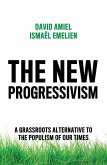In 2017, a white supremacist rally at the University of Virginia forced many to consider how much progress had been made in a country that, nine years prior, had elected its first Black president. Beyond these racial flashpoints, the increasingly polarized nature of US politics has reignited debates around the meaning of identity, citizenship, and acceptance in America today. In this pioneering book, Khalilah L. Brown-Dean moves beyond the headlines to examine how contemporary controversies emanate from longstanding struggles over power, access, and belonging. Using intersectionality as an organizing framework, she draws on current tensions such as voter suppression, the Me Too movement, the Standing Rock protests, marriage equality, military service, the rise of the Religious Right, protests by professional athletes, and battles over immigration to show how conflicts over group identity are an inescapable feature of American political development. Brown-Dean explores issues of citizenship, race, ethnicity, gender, sexual identity, and religion to argue that democracy in the United States is built upon the battle of ideas related to how we see ourselves, how we see others, and the mechanisms available to reinforce those distinctions. Identity Politics in the United States will be an essential resource for students and engaged citizens who want to understand the link between historical context, contemporary political challenges, and paths to move toward a stronger democracy.
Dieser Download kann aus rechtlichen Gründen nur mit Rechnungsadresse in A, B, BG, CY, CZ, D, DK, EW, E, FIN, F, GR, HR, H, IRL, I, LT, L, LR, M, NL, PL, P, R, S, SLO, SK ausgeliefert werden.
'Brown-Dean makes clear how notions of belonging and exclusion constitute relentless forces in shaping policy, laws, and political representation in the United States. The book's lively interplay of deep historical dives and compelling empirical evidence drives home the power of boundary-making around race, gender, religion, and other identities in US political life. A must-read for students of politics.'
Janelle Wong, University of Maryland
'Brown-Dean situates today's identity politics debates within a much-needed legal and political historical context, revealing that all politics are indeed about identity, and urging us to resist simplistic frameworks and instead engage in tough but necessary conversations about difference.'
Heath Fogg Davis, Temple University
'An exciting and comprehensive introduction to identity politics in America today'
Sharon Wright Austin, University of Florida
'This superb text is masterfully written and excellently researched. Undergraduate students will find the material engaging and thought-provoking. Professor Brown-Dean is skilled at making the basic tenets of American government come alive in the 21st century by foregrounding identity politics as central to understanding American democracy.'
Nadia Brown, Purdue University
Janelle Wong, University of Maryland
'Brown-Dean situates today's identity politics debates within a much-needed legal and political historical context, revealing that all politics are indeed about identity, and urging us to resist simplistic frameworks and instead engage in tough but necessary conversations about difference.'
Heath Fogg Davis, Temple University
'An exciting and comprehensive introduction to identity politics in America today'
Sharon Wright Austin, University of Florida
'This superb text is masterfully written and excellently researched. Undergraduate students will find the material engaging and thought-provoking. Professor Brown-Dean is skilled at making the basic tenets of American government come alive in the 21st century by foregrounding identity politics as central to understanding American democracy.'
Nadia Brown, Purdue University









